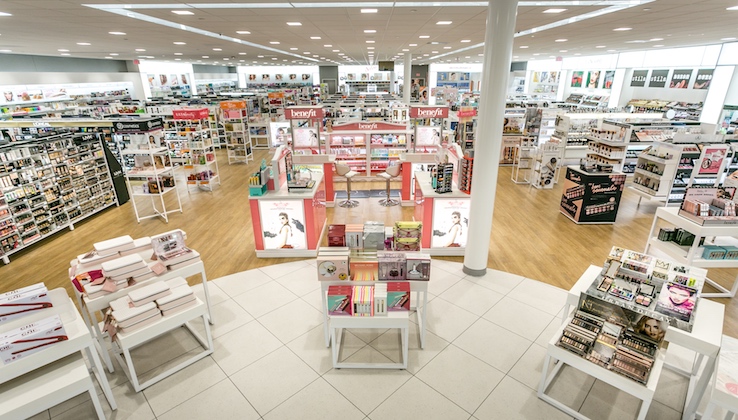With brick-and-mortar stores closed for the foreseeable future, retailers and brand partners have shifted focus to e-commerce, but even that is becoming a channel that brands can’t rely on.
Retailers are shifting their existing in-store inventory to satisfy e-commerce purchases. They are therefore not making wholesale e-commerce purchases from brand partners for April and May. Additionally, nearly every retailer has reconfigured its payment terms by extending them from 30 days to 90 or 120 days after making a wholesale purchase. Specifically, Bluemercury, SpaceNK, Macy’s and Neiman Marcus, among others, have all extended their terms to 120-days, according to industry sources. All retailers listed declined to comment.
As a result, brands are being put in a vice. So they’re leaning into alternative retail channels, such as subscription boxes and their own DTC sites, while also consulting their balance sheets to see whether they need to tap into emergency funds.
The Fragrance Group, a distributor and licensor of 14 mass and luxury brands including Christian Siriano and Banana Republic, is assessing whether it needs to tap into emergency cash reserves, said Alex Shalbaf, CEO of The Fragrance Group. The Fragrance Group works with retailers like Macy’s, Kohl’s and Bergdorf Goodman. More than 50% of the company’s revenue is from wholesale partnerships, said Shalbaf. Future cost-cutting may include pay cuts and furloughs of the company’s field education teams, he said. But ultimately, Shalbag said the industry is relying on its retail partners to be able to pay the company on time and counting on federal relief from the recent $2.2 trillion government stimulus plan.
An additional constraint comes from drop-shipping partnerships with retailers like Macy’s.
“The frustrating part to me is that you conduct a direct-to-consumer [arrangement] for the retailer, but they’re going to [pay us] in 120 days, which means they’re collecting money for a product that we stocked and shipped for them,” said Dean Laskowski, The Fragrance Group divisional president.
Now that wholesale opportunities have paused, The Fragrance Group is trying to bolster its DTC e-commerce website, So-Avant-Garde.com: The company accelerated the re-launch of the website’s backend by about two months and reopened the website the week of March 23. It’s currently driving customers to the website through digital advertising and SEO. The company will invest more in its digital advertising and introduce a DTC sampling program if the retail closure situation lasts for several months, although plans are not in place yet.
“Liquidity right now is a massive problem [for the industry],” said Shalbaf. “Not a lot of people have an answer to that problem, and the longer businesses stay closed, the bigger the problem becomes.”
For Asian-inspired skin-care brand Purlisse, the delayed payments situation due to coronavirus won’t break the company, but it does impact the business, said Jennifer Yen, founder of Purlisse. Purlisse is 80% DTC and 20% wholesale through retailers like Walmart and SkinStore, and the brand earned $10 million in 2019 revenue. Yen said that, for 2020, the brand had a stretch goal of 30% growth on top of a baseline figure, which she declined to specify, but said the brand will likely not grow beyond the baseline this year.
With the loss of wholesale revenue, there is a roughly 20% hole to account for. In turn, she has had to initiate her own cost-cutting measures, beginning with renegotiating every contract possible. Her brands signed with a new marketing agency in mid-March, but she went back and cut marketing budgets allocated for general brand awareness. Instead, she will rely on an existing brand partnership with Ipsy and a new partnership with FabFitFun to fulfill that marketing vacuum. She also stopped new negotiations with new influencers.
As a brand founder who experienced the 2008 financial crisis and recession, Yen said that the experience taught her lessons which she has applied for the past 12 years, including the importance of keeping a lean team, focusing on profitability versus growth, and reinvesting profit into hiring and product development. Across Purlisse, there are 10 full-time employees and she does not anticipate a need to make furloughs or layoffs. But she is also examining whether she needs to tap into a line of credit she secured in late 2019. Yen declined to disclose the amount of credit but said it was explicitly created as a safety net for times like this.
“Scrappy is the new sexy,” said Yen. “It’s hard to see when the party’s over when times are still good, but I’ve been preparing for another moment like 2008 because it was so traumatizing.”




